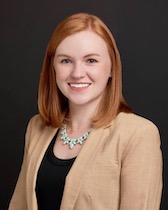Meet Adjunct Professor Allison Hurst
 Northwestern’s Adjunct Professor of Religious Studies Allison Hurst discusses her course, her fascination with the Hebrew Bible and how teaching has impacted her life.
Northwestern’s Adjunct Professor of Religious Studies Allison Hurst discusses her course, her fascination with the Hebrew Bible and how teaching has impacted her life.
Hurst has been an Adjunct Professor for the Weinberg Religious Studies department throughout the Fall 2023 quarter. The Harvard University Ph.D. candidate is now approaching the end of her course Introduction to the Hebrew Bible.
“My class is not focused on teaching students specific theological interpretations; we talk about possibilities for all different types of interpretations,” Hurst said.
Hurst’s course is a historical introduction on how the Hebrew Bible came into existence, and it explores issues that scholars consider when looking at a piece like this. Her course encourages students to interpret the text they are reading for themselves. Hurst said the wide variety of backgrounds represented in her class makes room for overall rich discussions.
She said her favorite part of teaching here, at Northwestern, has been her students. Hurst said she appreciates how invested her students are in the material even if they may not be exploring the topic afterward.
Hurst said her experience has been positively influenced further by her welcoming colleagues in the Religious Studies department and at the Crown Family Center for Jewish and Israel Studies.
The scholar of the Hebrew Bible said this area of study first piqued her own interest during her undergraduate career at the University of Virginia. Hurst said she took an excellent introductory course about the Hebrew Bible; this showed her that the study is very interdisciplinary, which was something she loved. She said she felt there was always more to learn in these courses.
Hurst’s biggest writing project, her dissertation, looks at how Egypt is remembered in the exodus traditions across the Hebrew Bible. She enjoys writing about how Israel’s relationship with Egypt is not always depicted as a bad one. Hurst said her interest with women’s roles turned into a fascination with how Egypt is portrayed in the Hebrew Bible, as there are stories that demonstrate the intersection between the two.
Hurst said teaching the Hebrew Bible has made her a more well-rounded scholar. “I know there is this cliché that you don’t really learn something until you have to teach it, but I think it’s actually pretty true,” she said.
She said teaching has made her more empathetic. Hurst said she has learned a lot from watching her students struggle with what they are learning and what it means for their own understanding of the Bible.
“I teach the Bible specifically in a way that most people never really encounter[it], so I’ve seen all kinds of reactions to learning information that might not square with what students have learned in other settings,” Hurst said.
Hurst said the skill of evaluating a source from multiple different angles is something that can carry on well past her class. Hurst said she hopes her students walk away from it with the reinforced ability to think critically.
“I hope that from the experience of seeing multiple possibilities, learning about the context in which these texts came into existence and how they are used, that will transfer to how students read other primary sources for themselves and their interpretations,” Hurst said.
